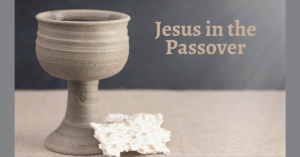Years ago, my oldest child had just gotten in trouble for disobeying me about something. I remember asking him why he did what I specifically told him not to do. His response: But I really badly wanted to.
Even in toddler language, I could see the connection to the root of all our disobedience. We really badly wanted to. When Eve was standing in the garden being tempted by Satan, she knew that eating of the fruit went against what God had commanded. But she really badly wanted to. When David was at home watching Bathsheba on the rooftop, he knew it was wrong to take her. But he really badly wanted to.
This is precisely why Jesus said in Mark 8:34, “If anyone would come after me, let him deny himself and take up his cross and follow me.” The second part, taking up your cross, means being willing to suffer for following Christ. But the first part of the requirement to come after Jesus is to deny yourself, which means giving up your own desires for those of God’s. Deny yourself. Lay down your own will to follow after God’s.
Jesus speaks of this on multiple occasions. In John 14:15 Jesus says, “If you love me, you will keep my commandments.” A few verses later He says, “If anyone loves me, he will keep my word…Whoever does not love me does not keep my words.” Our love for Jesus is always linked to our obedience. It is about denying your own desires to keep the words and commandments of God.
That is really what is meant when salvation is described as “making Jesus the Lord of your life.” Paul stated in Romans 10:9 that salvation is confessing with your mouth that Jesus is Lord. If Jesus is Lord of your life, then it is no longer you who is the master of your life, but God. It is no longer what you really badly want to do, but what God really badly wants you to do.
Jesus reiterates this point in Matthew 7:21. Jesus says, “Not everyone who says to me, ‘Lord, Lord’ will enter the kingdom of heaven, but he who does the will of My Father who is in heaven will enter.” Just because someone claims the name of Jesus, or attends church, or says they are Christians, or teaches in the church, it does not mean they will not enter into the kingdom of heaven. Only those who do the will of the Father in heaven, those who walk in obedience.
Luke describes this same parable in chapter 6. Jesus says, “Why do you call me ‘Lord, Lord,’ and not do what I tell you?” The only way that someone is Lord over you is if you have given him authority over you. Therefore, you cannot claim that Jesus is Lord of your life if you do not submit to His authority. In other words, our obedience is linked to our sincerity of belief, which is linked to our salvation.
Can we really say that Jesus is Lord in our lives when we persistently live in a way that goes against God’s word? Can we really say that Jesus is Lord in our lives when we don’t repent of sin? Can we really say that Jesus is Lord in our lives when we have twisted Scripture to fit the lifestyle we want instead of the lifestyle that honors God? Can we really say that Jesus I Lord in our lives when we make choices for our own happiness that directly contradict God’s commands?
Jesus is asking that question in Luke. How can you call Jesus Lord when you ignore His Words? You have not made Jesus Lord over your life when you are still living as Lord of your own life.
Now, that doesn’t mean that we have to work to earn our salvation because none of us can do that (Romans 3:23). And it certainly doesn’t mean that after salvation we will no longer disobey. We will always struggle here on this earth with denying ourselves and following after Jesus. Just look at the life of David.
What it does mean is it is important what we do with our desires. What do we do with the “really badly wanted to” stuff?
The first thing to recognize when Jesus says to “deny yourself” is that clearly not all of our desires are from God. Just because you desire something does not mean that it is a Godly thing. This is why we are told to “test all things; hold fast what is good. Abstain from every form of evil.” (1 Thessalonians 15:21-22)
Notice those statements are back-to-back. Test everything. Keep what is good and throw out what is bad because not everything we encounter is worth holding on to. That goes for the ideas, desires, situations, or even people that come and go in our lives. Not all of those are given from God. We must test them against His Word (remember John 14:23?) and against the conviction and leading of the Holy Spirit.
We must also remember the true condition of our heart. Jeremiah says, “The heart is deceitful above all things, and desperately sick; who can understand it?” So why would we want to follow the desires of our heart? Our hearts are so wicked and depraved that we can’t even understand the depths of their depravity.
The world says, “Follow your heart.” But Jesus says, “Follow MY heart.” Listen to my words and keep my commandments. Because He loves us so much, we can trust that He knows what is best and desires what is best. That is why Psalm 37:4 says, “Delight yourself in the Lord, and he will give you the desires of your heart.” When we desire the heart of God, when we submit to His Lordship, when we deny ourselves to follow Him, when our hearts are set in Him, He will gladly give us those desires.
The world says, “Follow your heart.” But Jesus says, “Follow MY heart.”
Cathryn Sterling Tweet





2 thoughts on “Is Every Desire from God?”
I thank you for this!! Wonderful!!
Amen – great post!
“The Christian life is warfare. Much within us and much without us must be resisted.” – John Newton, former slave trader, anti-Christian, and sexual pervert, author of Amazing Grace
Comments are closed.